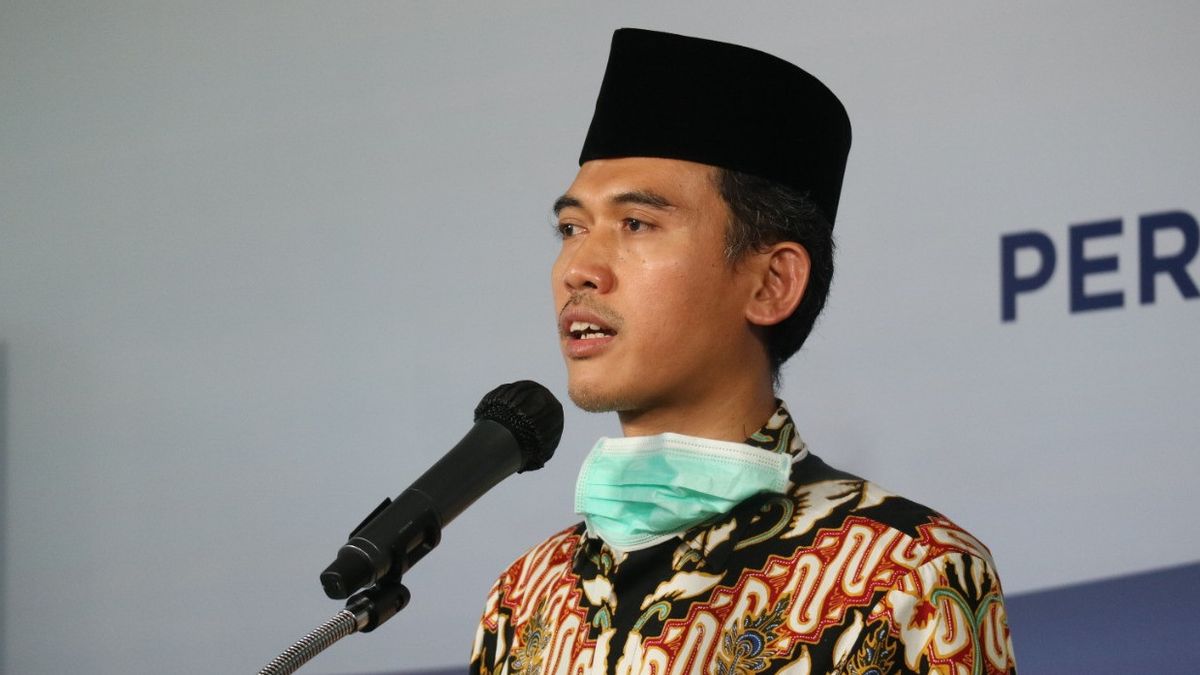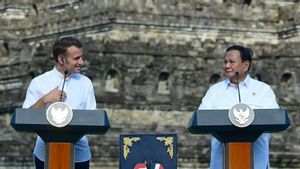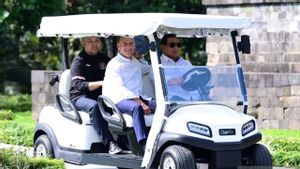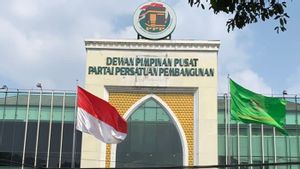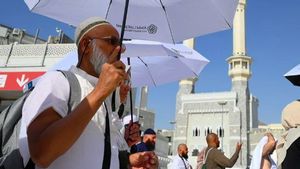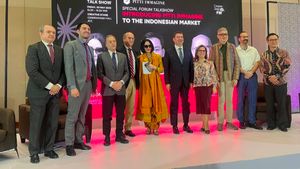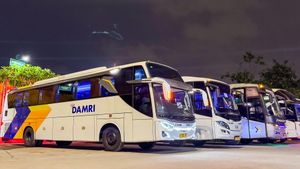JAKARTA - Fasting activities during the month of Ramadan this year will certainly feel different from previous years due to the COVID-19 outbreak. People are asked not to gather and worship at the mosque.
Even so, Secretary of the Fatwa Commission of the Indonesian Ulema Council (MUI) Asrorun Niam Sholeh said the corona virus could not be used as an excuse to prevent fasting and worship activities.
"Crowd restrictions do not limit worship. According to experts, crowds in stations are now a potential factor for the spread of the epidemic. For this reason, avoiding crowds in today's context is one form of worship," said Asrorun at Graha BNPB, East Jakarta, Monday, April 13. .
Asroroun analogized fasting as a bulwark against the spread of COVID-19. One thing that is believed by religious leaders, fasting improves health for the body.
Prevention of the COVID-19 outbreak, said Asrorun, is not by eliminating worship. It's just that, there are worship activities with new habits because there are new situations and conditions. However, stay within the guidance of the sharia.
The mosque remains the center of broadcasting, the call to prayer is still sung through the mosque as a marker of the time for the call to prayer and religious announcements. However, religious activities are carried out in their respective homes.
"We make the household the main center of family worship. Tarawih worship with family, wife, and children who under certain conditions, sometimes we neglect and lose the opportunity," said Asrorun.
In addition, Asrorun also appealed to people who plan to do iftar activities together to replace them with providing food assistance to homes or workers who still have to work outside the home.
"Be content with a balanced diet and a healthy diet. A healthy body and a healthy life force will give birth to immunity and prevent exposure to COVID-19,"
Asrorun Niam Sholeh
Then, the zakat that we usually distribute to help the smooth running of facilities and infrastructure for worship such as the construction of mosques can be allocated to help deal with COVID-19.
"We focus on allocating our zakat and donations for PPE needs, helping relatives affected by the COVID-19 outbreak, helping with the recovery and treatment of COVID-19 victims, and helping the bodies of Covid-19 victims," he explained.
For information, this year there are many typical Ramadan activities that cannot be done. Because, at this time the public is asked to comply with the rules of social distancing-physical distancing due to the COVID-19 pandemic.
In order for the public to understand what must be done, the Minister of Religion Fachrul Razi issued a circular regarding the Guidelines for Ramadan and Eid 1 Syawal 1441H in the midst of the corona virus outbreak.
This circular regulates the implementation of worship in the month of Ramadan which starts on April 23, Eid al-Fitr, and guidelines for the collection and distribution of zakat.
FATWA NO 14 YEAR 2020 - IMPLEMENTATION OF WORSHIP IN THE CONDITION OF THE COVID-19 PLAGUE https://t.co/G2GtDCAz0S
- Indonesian Ulema Council (@MUIPusat) April 4, 2020
First, Fachrul asked people not to do sahur on the road and break their fast together. This is because these two typical activities in the month of Ramadan are gathering activities. Breaking the fast together, whether held in government agencies, private institutions, mosques or prayer rooms is also abolished.
In addition, Tarawih prayers are asked not to be held in the mosque, but to be performed individually or in congregation with the nuclear family at home. Recitation or tadarus Al-Qur'an is done in each house.
In addition, the commemoration of Nuzulul Qur'an in the form of tablighs by presenting lecturers and masses in large numbers, both in government agencies, private institutions, mosques and prayer rooms were also eliminated.
The public is also asked not to participate in the last 10 (ten) nights of Ramadan at the mosque or prayer room. Meanwhile, the implementation of Eid Al-Fitr prayers which are usually held in congregation, either in mosques or in the field, will be eliminated.
"In order not to carry out a round trip, the activity is sufficient to be carried out at the mosque / musala by using loudspeakers. Then, the Islamic boarding school activities through electronic media," said Fachrul.
The English, Chinese, Japanese, Arabic, and French versions are automatically generated by the AI. So there may still be inaccuracies in translating, please always see Indonesian as our main language. (system supported by DigitalSiber.id)
